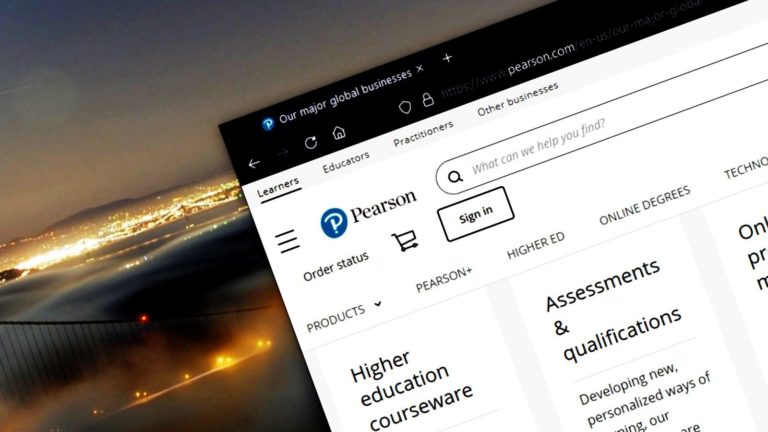Ransomware now attacks Microsoft Exchange servers with ProxyLogon exploits
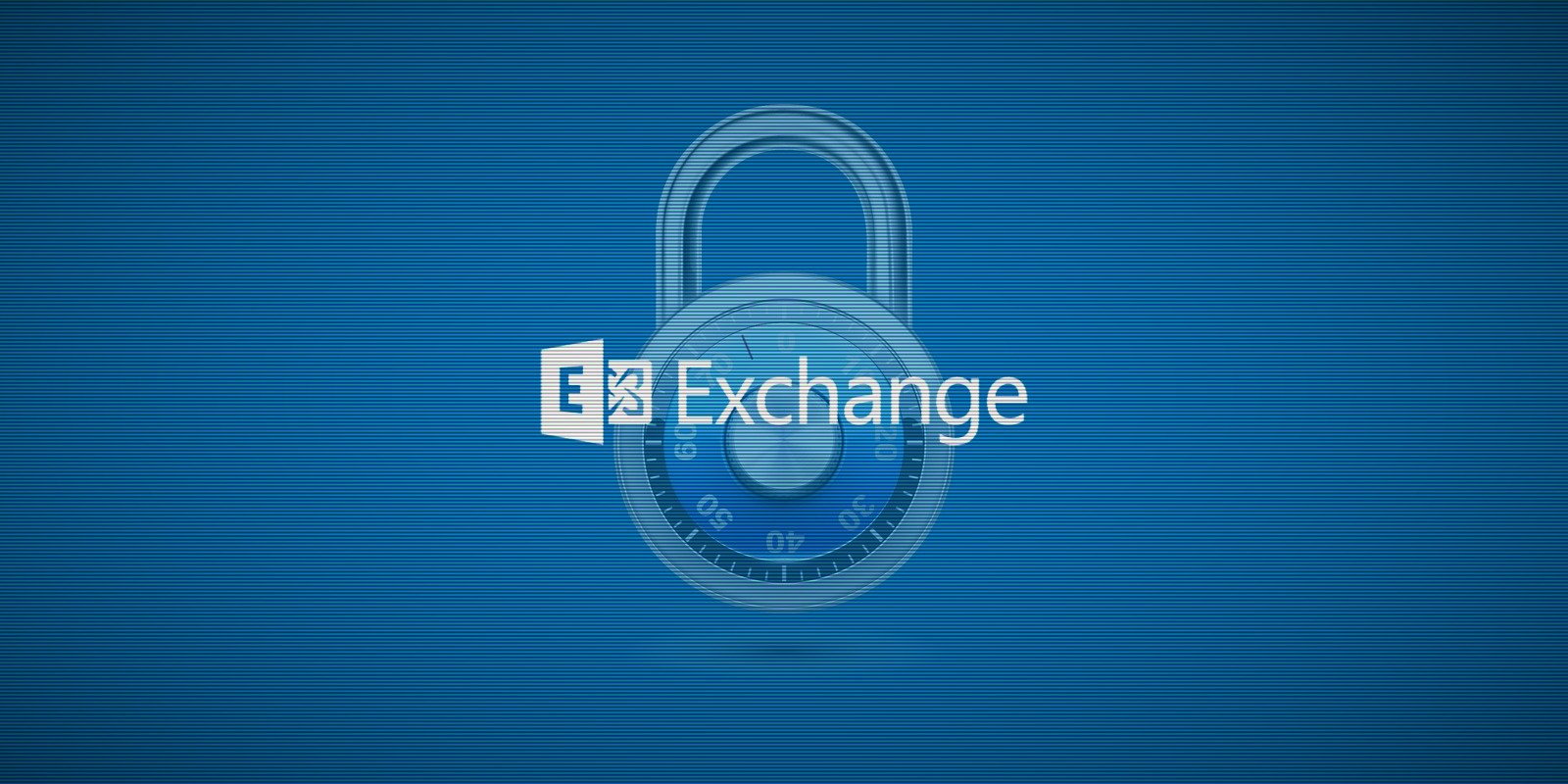
Threat actors are now installing a new ransomware called ‘DEARCRY’ after hacking into Microsoft Exchange servers using the recently disclosed ProxyLogon vulnerabilities.
Since Microsoft revealed earlier this month that threat actors were compromising Microsoft Exchange servers using new zero-day ProxyLogon vulnerabilities, a significant concern has been when threat actors would use it to deploy ransomware.
Unfortunately, tonight our fears became a reality, and threat actors are using the vulnerabilities to install the DearCry ransomware.
Attacks started March 9th
According to Michael Gillespie, the creator of the ransomware identification site ID-Ransomware, starting on March 9, users began submitting a new ransom note and encrypted files to his system.
After reviewing the submissions, Gillespie discovered that users submitted almost all of them from Microsoft Exchange servers.
On March 9, a victim also created a forum topic in the BleepingComputer forums where they state their Microsoft Exchange server was compromised using the ProxyLogon vulnerabilities, with the DearCry ransomware being the payload.
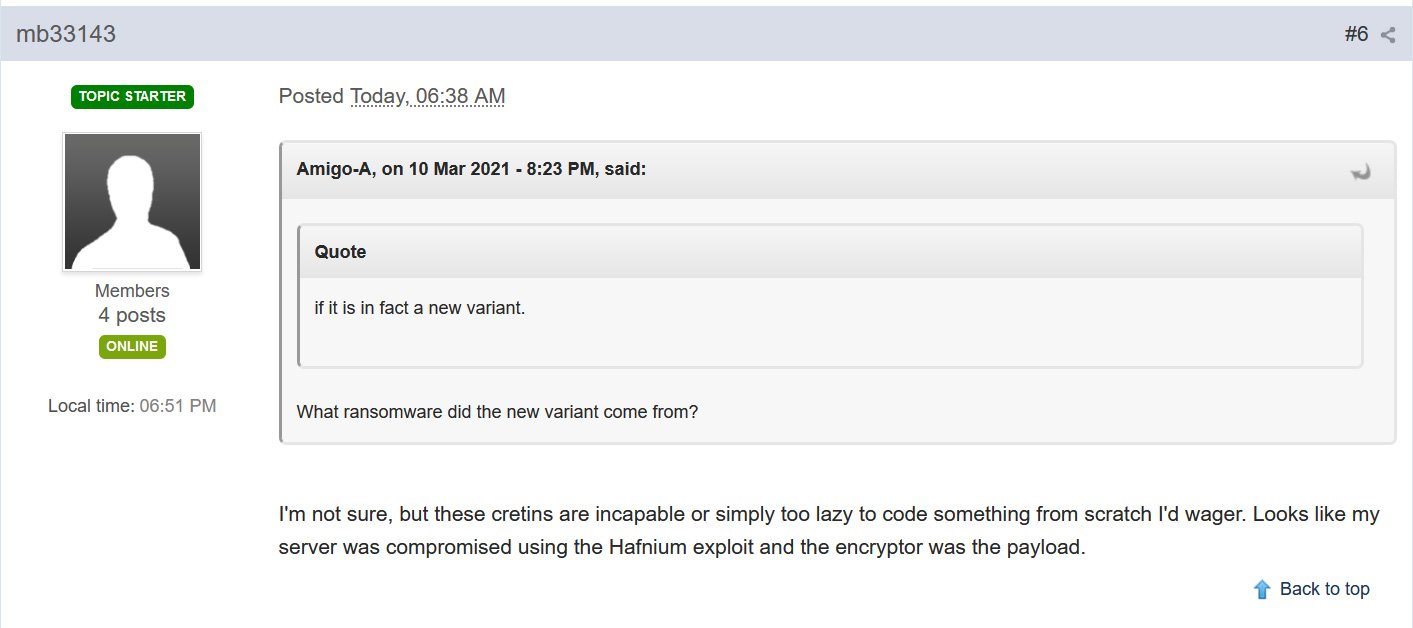
After we broke the news about this attack, Microsoft security researcher Phillip Misner confirmed that the DearCry, or what they call DoejoCrypt, is installed in human-operated attacks using the new Microsoft Exchange exploits.
Microsoft observed a new family of human operated ransomware attack customers – detected as Ransom:Win32/DoejoCrypt.A. Human operated ransomware attacks are utilizing the Microsoft Exchange vulnerabilities to exploit customers. #DearCry @MsftSecIntel
— Phillip Misner (@phillip_misner) March 12, 2021
Today, McAfee’s Head of Cyber Investigations John Fokker told BleepingComputer that they are seeing victims in United States, Luxembourg, Indonesia, Ireland, India, and Germany.
While the detections are still low, Fokker states that the detections are continuing to grow.
AV vendors are currently detecting DearCry using a variety of generic ransomware detections. Below we have listed the more specific detections:
- Ransomware/Win.DoejoCrypt [AhnLab]
- Win32/Filecoder.DearCry.A [ESET]
- Win32.Trojan-Ransom.DearCry.B [GDATA]
- Ransom-DearCry [McAfee]
- Ransom:Win32/DoejoCrypt.A [Microsoft]
- Ransom.DearCry [Rising]
- Ransom/W32.DearCry [TACHYON]
- Ransom.Win32.DEARCRY [TrendMicro]
- W32.Ransomware.Dearcry [Webroot]
How the DearCry ransomware encrypts computers
MalwareHunterTeam was able to find three samples of this ransomware on VirusTotal [1, 2, 3], with addition hashes below, all of which are MingW-compiled executables. The one analyzed by BleepingComputer includes the following PDB path:
C:UsersjohnDocumentsVisual Studio 2008ProjectsEncryptFile -svcV2ReleaseEncryptFile.exe.pdbWhen launched, the DearCry ransomware will create a Windows service named ‘msupdate’ that is started to perform the encryption. This Windows service is later removed when the encryption process is finished.
The ransomware will now begin to encrypt files on the computer if they match the following extensions:
.TIF .TIFF .PDF .XLS .XLSX .XLTM .PS .PPS .PPT .PPTX .DOC .DOCX .LOG .MSG .RTF .TEX .TXT .CAD .WPS .EML .INI .CSS .HTM .HTML .XHTML .JS .JSP .PHP .KEYCHAIN .PEM .SQL .APK .APP .BAT .CGI .ASPX .CER .CFM .C .CPP .GO .CONFIG .PL .PY .DWG .XML .JPG .BMP .PNG .EXE .DLL .CAD .AVI .H.CSV .DAT .ISO .PST .PGD .7Z .RAR .ZIP .ZIPX .TAR .PDB .BIN .DB .MDB .MDF .BAK .LOG .EDB .STM .DBF .ORA .GPG .EDB .MFSWhen encrypting files, it will append the .CRYPT extension to the file’s name, as shown below.
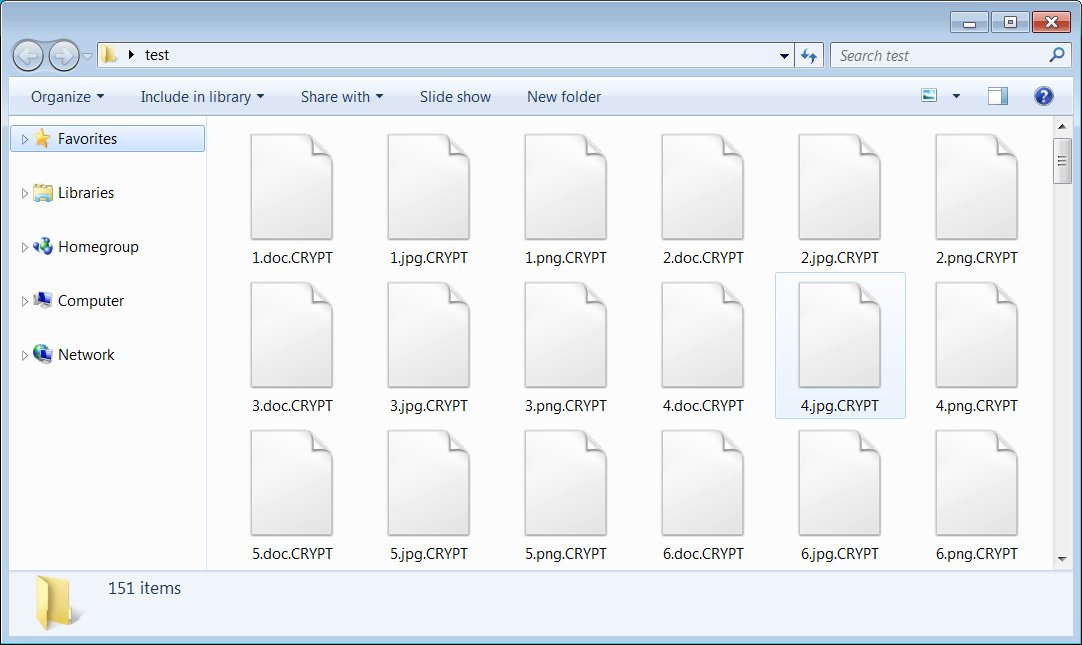
Embedded in each sample of DearCry is a public RSA-2048 key.
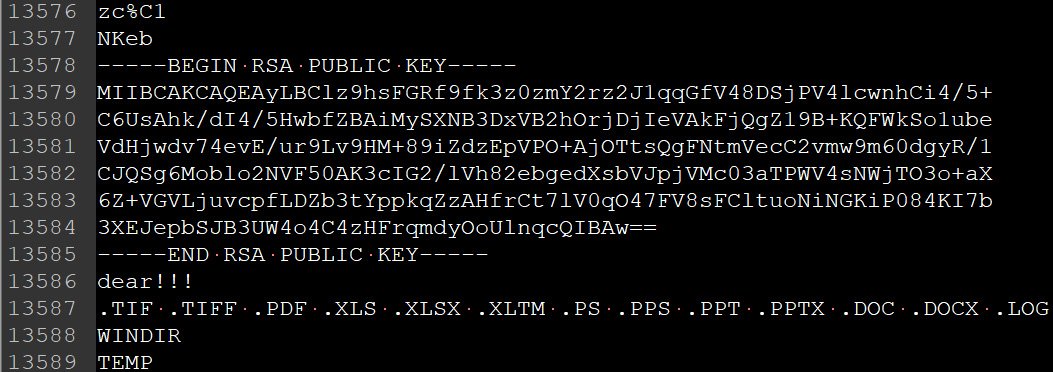
Gillespie told BleepingComputer that the ransomware uses AES-256 to encrypt the files and the RSA-2048 public key to encrypt the AES key. The ransomware will also prepends the ‘DEARCRY!’ string to the beginning of each encrypted file.
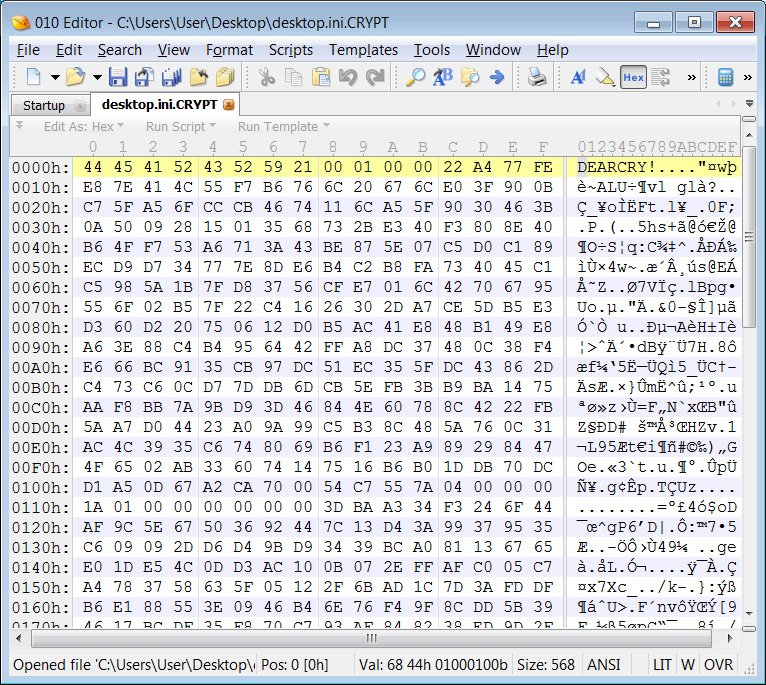
When done encrypting the computer, the ransomware will create a simple ransom note named ‘readme.txt’ on the Windows desktop. This ransom note contains two email addresses for the threat actors and a unique hash, which Gillespie states is an MD4 hash of the RSA public key embedded in the malware.
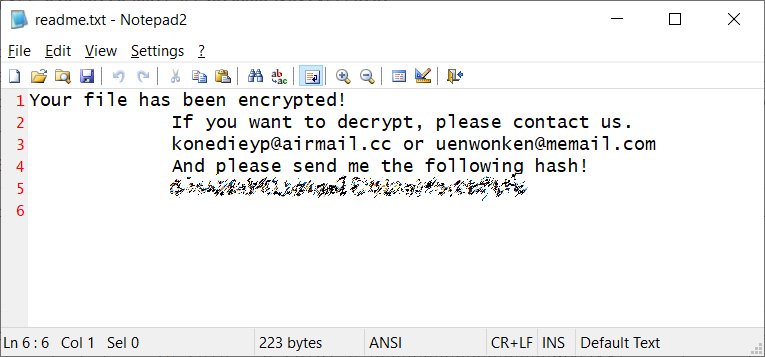
For at least one of the victims, the ransomware group demanded a $16,000 ransom.
Unfortunately, the ransomware does not appear to have any weaknesses that would allow victims to recover their files for free.
Patch now!
According to new data shared by cybersecurity firm Palo Alto Networks with BleepingComputer, tens of thousands of Microsoft Exchange servers have been patched over the last three days.
Unfortunately, Palo Alto Networks states that there are still approximately 80,000 older servers that cannot directly apply the recent security updates.
“I’ve never seen security patch rates this high for any system, much less one as widely deployed as Microsoft Exchange,” said Matt Kraning, Chief Technology Officer, Cortex at Palo Alto Networks. “Still, we urge organizations running all versions of Exchange to assume they were compromised before they patched their systems, because we know attackers were exploiting these zero-day vulnerabilities in the wild for at least two months before Microsoft released the patches on March 2.”
All organizations are strongly advised to apply the patches as soon as possible and to create offline backups of their Exchange servers.
Not only to protect your mailboxes from being stolen but now to prevent them from being encrypted.
DearCry / DoejoCrypt IOCs
Associated DearCry hashes:
SHA256: 2b9838da7edb0decd32b086e47a31e8f5733b5981ad8247a2f9508e232589bff
SHA256: e044d9f2d0f1260c3f4a543a1e67f33fcac265be114a1b135fd575b860d2b8c6
SHA256: feb3e6d30ba573ba23f3bd1291ca173b7879706d1fe039c34d53a4fdcdf33ede
SHA256: FDEC933CA1DD1387D970EEEA32CE5D1F87940DFB6A403AB5FC149813726CBD65
SHA256: 10BCE0FF6597F347C3CCA8363B7C81A8BFF52D2FF81245CD1E66A6E11AEB25DAAssociated DearCry file names:
readme.txtAssociated DearCry emails:
konedieyp@airmail.cc
uenwonken@memail.comDearCry ransom note text:
Your file has been encrypted!
If you want to decrypt, please contact us.
konedieyp@airmail.cc or uenwonken@memail.com
And please send me the following hash!
[victim id]
Update 3/11/21: Updated article after confirmation from Microsoft that it is installed via ProxyLogon vulnerabilities. Added list of targeted extensions and heatmap/victim info from McAfee.
Update 3/12/21: Added AV detection information.
Update 3/13/21: Added IOCs section



